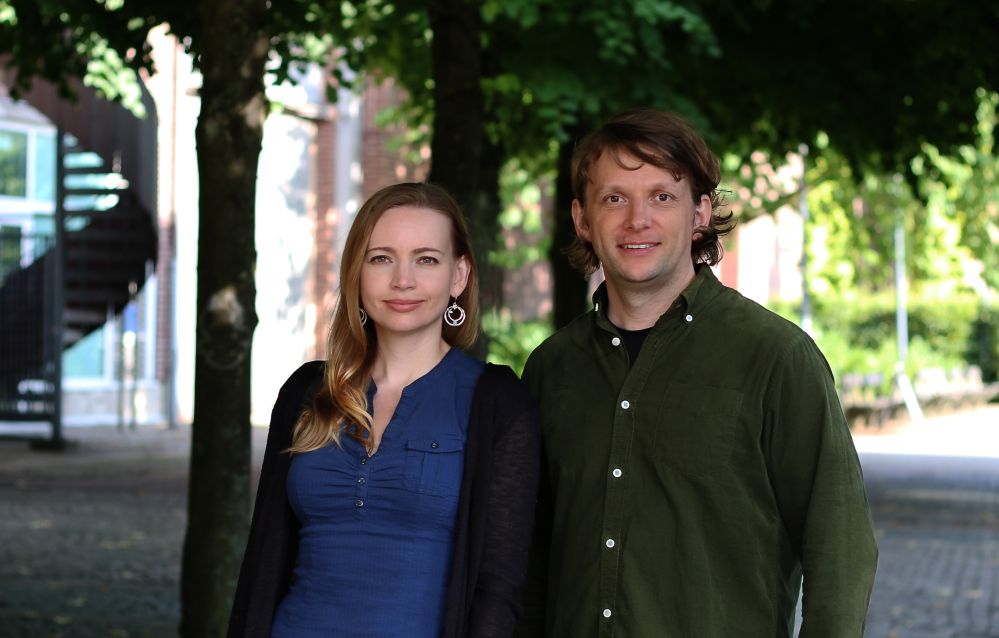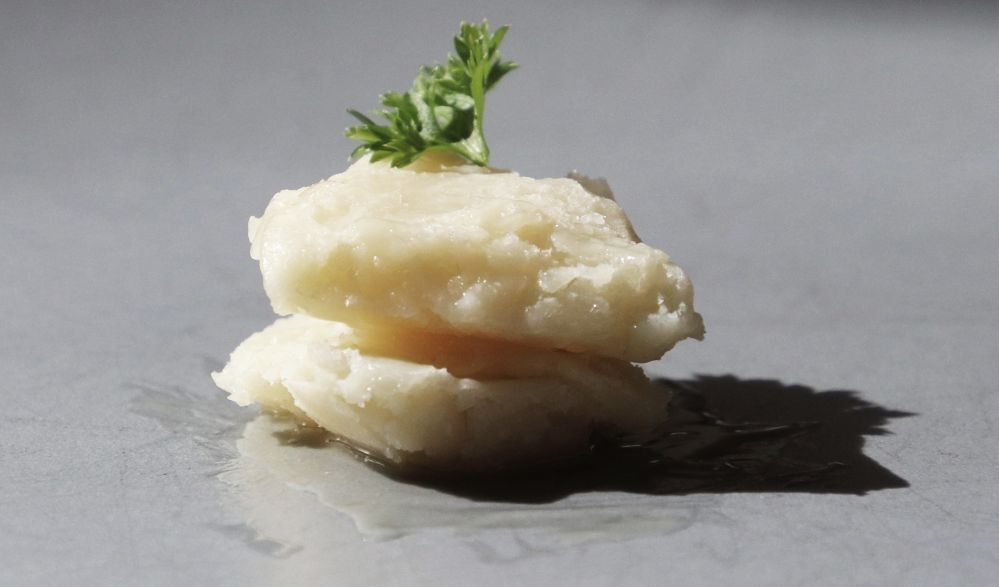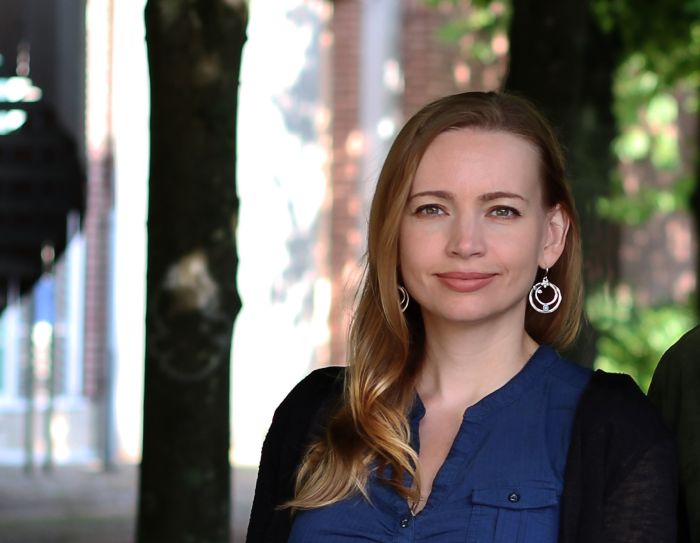The race is on to replace tropical [coconut, palm, cocoa] and animal fats with alternatives boasting superior functionality and a reduced environmental footprint. But will oil-producing microbes – even very high-yielding ones – ever be a scalable solution?
Melt&Marble—a Swedish startup engineering yeast strains to produce ‘designer fats’ for meat alternatives—is pretty confident the answer is yes, provided the technology is deployed at significant scale, says cofounder and CEO Dr. Anastasia Krivoruchko.
“We’re already at the point where we have titers and yields that are commercially relevant, and the good thing about our technology is that we’re using microbes that have been used in industry in the past [albeit to produce different products]. Our process is also compatible with existing infrastructure, so it’s plug and play.
“But like many precision fermentation companies, we’ll need access to production capacities of sufficient scale to enable us to get the unit economics that we need.”

The origins story
A spinoff from Chalmers University of Technology in Gothenburg, Sweden, Melt&Marble (originally Biopetrolia) was formed as a patent-holding company for all the IP that Krivoruchko and her colleagues were generating around engineering microbes to produce tailored lipids.
Like many firms working with oil-producing single-celled organisms, Melt&Marble was originally focused on biofuels but pivoted to the food space, joining a growing number of startups coaxing microbes to make tailored fats including ÄIO, c16 Bio, Circe, Nourish, Yali Bio, Seminal Bio, NoPalm Ingredients, Zero Acre Farms, and Clean Food Group.
According to Krivoruchko: “It was only a couple of years ago that we started looking at the alternative protein space and realized there was a huge problem when it came to the fats, which are not fit for purpose. Almost every company we talked to was not happy with coconut oil, both from the perspective of functionality as it melts too fast and doesn’t have the right mouthfeel or flavor, but also for sustainability reasons.
“We can address this challenge because we can essentially engineer microbes to produce fat that is like beef fat, chicken fat, or palm oil.
“We can do that with naturally oleaginous yeast strains [strains that naturally produce high levels of fat], but we also work with strains that are not naturally oleaginous; depending on the application, we might want to use different hosts.”
So how customizable is the Melt&Marble platform?
“This is the core of our technology, that we can produce fats with very specific properties and melting points,” claims Krivoruchko. “We can engineer our yeasts to produce specific fatty acids, specific chain lengths, and specific saturations. And we can also control how these fatty acids assemble, and control melting points, mouthfeel, and flavor generation.
“A lot of companies maybe have a single stream and a single product, whereas we are more of a platform company.”

Downstream processing
As the yeast cells require breaking up to release the fat, tiny fragments of the host microorganism can end up in the final product depending on the level of downstream processing and purification steps Melt&Marble chooses to deploy, she says.
“Depending on how we’re doing our purification, we can basically control how much of the yeast is left there, so when we go for regulatory approval in the EU for example, we’ll ensure that the [modified DNA] is gone [so as not to trigger GMO regulation 1829/2003], whereas in other markets it’s not as big of an issue.”
In the US, the fact Melt&Marble is using genetically modified microbes to express its fats is “not really a huge problem from the perspective of going to market, but it is something to consider from the perspective of labeling,” says Krivoruchko, given that the fats will have to be labeled as ‘bioengineered’ if they contain detectible levels of modified DNA.
Go to market strategy
From a customer perspective, she says, “We have had a lot of interest in the US and Europe, but as the regulatory path is much simpler in the US, we’re planning to go to market there first and we’re going through the self-GRAS process now.
In the EU, under the novel foods process, she says, “it’s a little bit down to the interpretation of whichever consultant you’re working with, but we have a pretty good idea of what’s needed. The challenge is that the EU process is a bit more rigid in the sense that once you submit [your safety dossier] you are more or less locked into your strain and into your production process.
“By the time you get the approval—which could take years—you may well have a much better process than the one you submitted. As a European company, we want to go into the European market, but with the current regulatory framework, there’s a long lead time before we can do that, which is unfortunate.”
Designer fats
So what kind of fats is Melt&Marble making? Completely novel fats, or ‘animal-free’ versions of animal fat?
Closer to the latter, but the company is not making bioidentical fats, she says. “Our first product, MeatyMarble, has been designed to have a similar composition and functionality to beef fat, but at the same time, we’ve tweaked it a little bit to make it better so you don’t have the trans fats or cholesterol.
“It’s not 100% identical to beef fat because it’s not necessary or desirable to do that. It’s different with proteins produced via precision fermentation, where you might be producing a single molecule that is identical to the animal version, whereas fats are actually a whole collection of different molecules.”
As a result, labeling is still to be determined in collaboration with regulators, she says.
“You have to use some kind of descriptor that is accurate, so people understand what it is, but at the same time, we obviously don’t want something that’s sounds unappealing.”
Investors
To date, Melt&Marble has raised €5.75 million ($6.1 million) in seed funding and is currently raising a series A round in order to scale up and enter the US market, says Krivoruchko.
“Investors want to see letters of intent and basically any documented interest from customers that they would buy certain quantities based on a certain price, and we can provide those. We do see a bit more caution from investors about alt proteins, but at the same time they recognize that our fats can also go into other applications such as personal care.”
While competing with palm oil is going to be very challenging for precision fermentation companies in the short term, she says, down the road, things could change as more regulatory pressure is brought to bear on companies making products that contribute to deforestation.
Scaling up
Currently, Melt&Marble is operating in its own labs at “up to 10s” of liters, and at the pilot scale with co-manufacturers in the “hundreds of liters” scale, says Krivoruchko, who has a team of 17 people.
“There are contract manufacturers out there that can even go up to 200,000 liters. But what is a little bit more of a challenge is at the 500,000-liter scale, where the capacity is all owned by big companies with fermentation capabilities, so here a partnership might make more sense.”
While the company’s precision fermentation process could technically work on a continuous basis, enabling it to operate at high capacity from smaller fermentation vessels, “there’s a reason why most of the industrial processes operate batch or fed batch processes because of concerns over mutation and contamination,” she says. “But we are looking at some of these innovative technologies and companies [developing continuous processing methods].”
The goal in the next year or so is “getting from hundreds of liters to tens of thousands of liters, and getting regulatory approval in the US, which for us would be first self-GRAS, but then also submitting our [GRAS] dossier to the FDA [in order to secure a coveted ‘no questions’ letter],” says Krivoruchko.
“In the best-case scenario, we would like to launch something by the end of next year.”
Further reading:
Nourish Ingredients aims to launch fats with an ‘authentic animal taste and aroma’ in late 2024
Meet the founders: ÄIO looks to upcycled feedstocks to fuel biomanufacturing platform
Meet the founder: Chewing the designer fat with Satnam Singh at Fattastic Technologies
Meet the founders: Lypid tackles fat, the final frontier for alt meat




